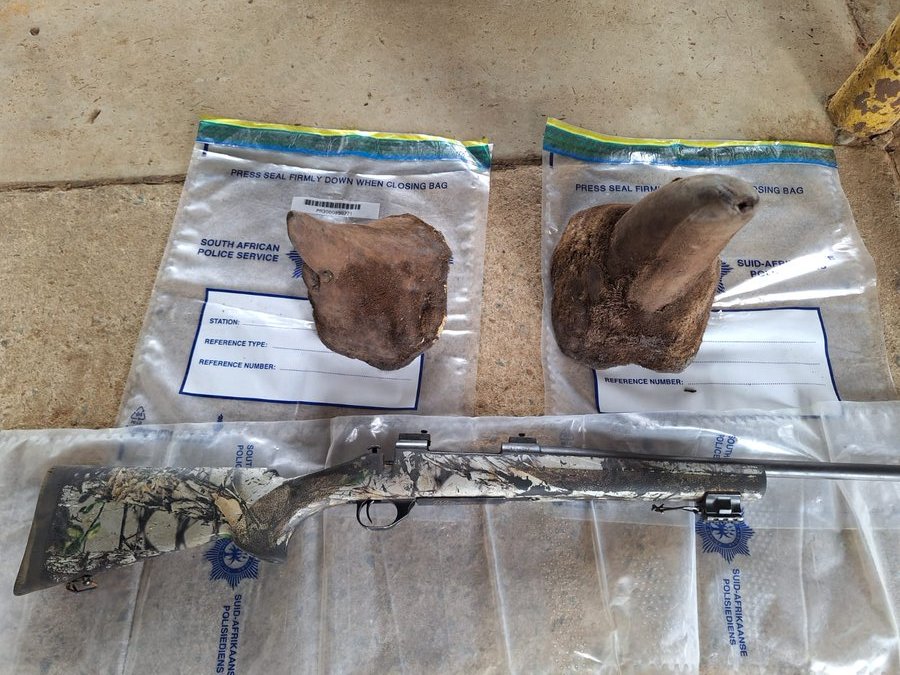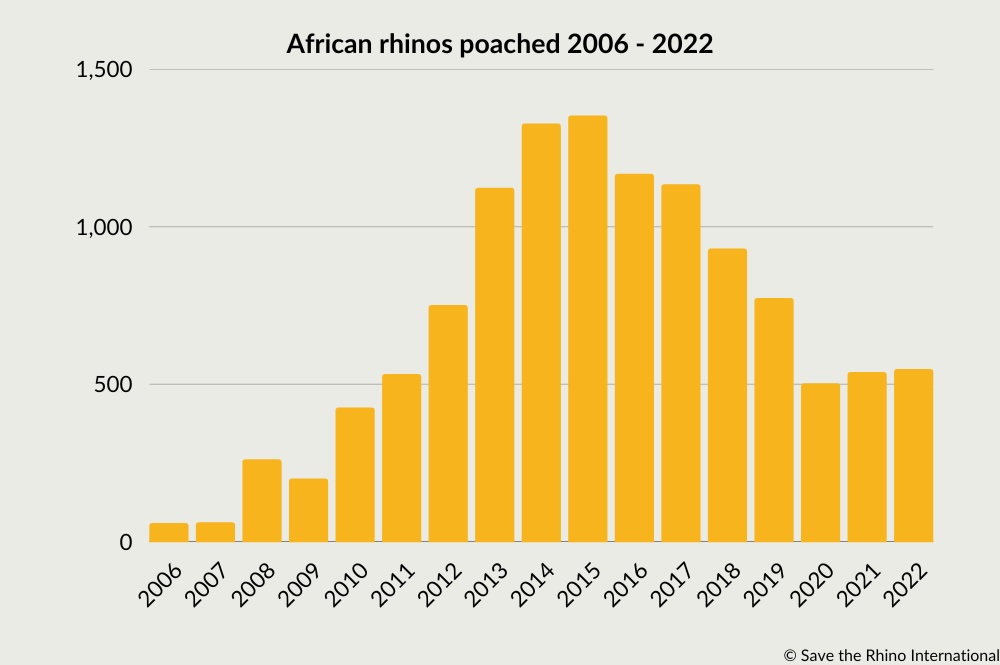What You Need To Know:
On January 19th, two suspected rhino poachers, notorious rhino poaching syndicate boss Elvis ‘2Bob’ Mhlongo, 51, and Bonginkosi Mvuba, 64, were arrested after police found two rhino horns and a rifle stowed in the engine of the vehicle they were traveling in.
Following a high speed chase, the vehicle was brought to a stop near Klipfontein Dam, and the suspects arrested for unlawful possession of a firearm as well as being in possession of rhino horns without a permit.
The carcass of a rhino was later found in the state-run park of Hluhluwe-Imfolozi.
Furthermore, it was established that the Mvuba was wanted in neighboring regions for unrelated charges, while ‘2Bob’ Mhlongo was on parole for attempted murder and robbery.
The rifle was then found to be stolen from Kabega Park in the Eastern Cape, per reports from Arrive Alive ZA.

Why it Matters:
In 2015, the South African High Court ruled in Kruger and Another v. Minister of Water and Environmental Affairs and Others, to lift a moratorium on the domestic trade of rhino horns which had been in place since 2009.
The High Court reasoned that there was not sufficient evidence provided to illustrate that the ban on the domestic trade of rhino horns and derived products decreased the flow of the aforementioned into the international market.
South Africa has been party to the Convention on International Trade in Endangered Species of Wild Fauna and Flora (CITES) since 1977, which bans any international trading of rhino horn.
Currently, due to a lack of statistics it is unclear how large the flow of domestically poached rhino horns and derived products are making it into the international market.
According to the International Rhino Foundations 2023 ‘State of the Rhino’ Report, “South Africa continues to battle devastating poaching losses. Although there has been a decline in poaching in Kruger National Park and in the country overall in 2023, poachers have shifted their focus to coastal KwaZulu-Natal province, particularly embattled Hluhluwe Imfolozi Game Reserve. The reduction in poaching in Kruger is likely due in part to increased security measures and in part due to the declining rhino population, making targets harder to find for poachers.”
In the first six months of 2023, 231 rhinos were poached, while there were 448 poachings for the entirety of 2022. Something Save the Rhino calls a “welcome decline.” However, the numbers remain stark for a nation with a rhino population of just 15,024.
The Details:
Chapter two of the 2004 Department of Environment, Forestry and Fisheries Biodiversity Act provides:
A person may sell, give, donate, buy, receive, accept as a gift or donation or in any similar way dispose of or acquire rhinoceros horn of South African origin, only if–
(1) the rhinoceros horn is 5 cm or more in length, irrespective of the weight of the rhinoceros horn;
(2) The rhinoceros horn is marked in accordance with the provisions of the TOPS regulations and the Rhinoceros Norms and Standards; and
(3) a permit that authorizes the selling, giving, donating, buying, receiving, accepting as a gift, or donation or in any similar way disposing of or acquiring the rhinoceros, has been issued in terms of the Biodiversity Act.
This act provides for the issuance of permits to those trading rhino horns domestically. Threatened or Protected Species (TOPS) regulations require that all rhino horns be microchipped as well as “specific information such as the weight, length, circumference as well as photographs of the horn must accompany applications for the possession of rhino horn to the provincial conservation authority responsible for the issuance of TOPS permits.”

While poaching figures have dipped dramatically in the past four years, it is unclear whether the plunge can be attributed to the lifting of the moratorium, increased security measures put in place by game reserves, or as aforementioned, the dropping numbers of live rhinos.


